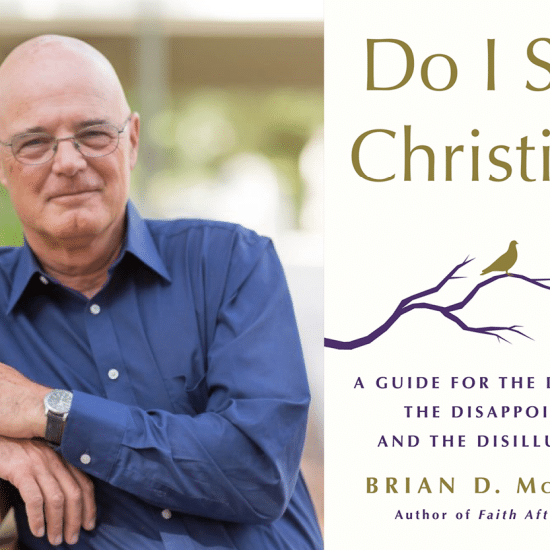Many people — students and their parents alike — may assume that faith is an inherent aspect of life at a private Christian college or university. Perhaps in some ways it is — through chapel worship, campus Bible studies, and local and international mission service opportunities.
But some faith expressions could be taken for granted and faith itself may not deepen. Many, if not most, students who choose to attend a religious institution might see religious activity on campus as an extension of church life. Most of their home churches provide worship, Bible study and service outlets. Higher education schools that serve Baptists in Missouri want to assist students to deepen their faith and to see its life imprint beyond religiosity, denominationalism or religious activity.
Hannibal-LaGrange College
This year Hannibal-LaGrange College administrators are emphasizing what it means for faculty, staff and students to have a biblical worldview, according to Tom Hufty, HLG vice president for collegiate affairs, and David Pelletier, vice president for academic affairs.
The vice presidents define a biblical worldview as "simply understanding how the world works from a biblical perspective." A worldview answers questions such as: Where did I come from? What's my purpose? Why is the world in the state it's in? Is there any hope? Pelletier and Hufty added that as students understand that individuals' answers to those questions determine behavior, they will understand how worldview affects society as a whole.
"Hannibal-LaGrange College is a place where students can come to discover their purpose, develop their skills and gain direction for their future," Hufty said. "The more students we equip with a biblical worldview, the greater impact for Christ in the future."
Pelletier led a faculty/staff workshop on the issue before the fall semester began, using the Focus on the Family video series, "The Truth Project."
During freshman seminar — a required activity — Hufty and Robert Bergen, associate dean of academic affairs and an Old Testament and biblical literature professor, will compare other worldviews to a biblical approach, addressing God, man, the universe and ethics.
Administrators plan to conduct a student survey to discover the worldview students currently embrace. Hufty also will present a series of chapel messages on the various aspects of a biblical worldview and how those dynamics affect daily living.
Missouri Baptist University

New Missoui Baptist University students scale a rock wall during Party in the Quad, part of MBU's Welcome Weekend Aug. 19-22. (Missouri Baptist University photo)
|
Missouri Baptist University focuses on helping students search for a deeper relationship to God by reaching beyond religiosity, Vice President for Student Development Andy Chambers explained. "Students today are more spiritual than 10 to 20 years ago…. They are less concerned with religion and more concerned with faith and with making a difference…. They expect to have the right to put together their world…their belief system…but they are open to the gospel…with compassion and understanding not rammed down their throats," he said.
MBU's campus ministries department provides Exist2Exit, a weekly worship and discipleship gathering to teach students to follow Jesus beyond the classroom. Many small groups provide Bible study, encouragement and accountability. UrbanUp provides students hands-on opportunities to minister in St. Louis-area communities.
The university also offers Blue Tray Seminars, a twice-a-month apologetics ministry.
The institution requires all freshmen to attend a one-hour collegiate seminar that includes consideration of the Christian worldview and integration of faith with learning. All students also are required to take Old and New Testament history courses.
MBU also relies on converted faculty and staff, Chambers emphasized. "Not only do we seek professors with the highest credentialing relative to their discipline, we seek people who are thoroughly converted to Christ and who evidence their commitment through active discipleship and involvement in a local church," he said. "Perhaps the most influence MBU will have on a student is through their relationship with a professor, a coach or another staff member who loves Jesus and can share his love with students we are called to serve."
Southwest Baptist University
For several years, administrators at Southwest Baptist University have intentionally integrated faith into academic life. "It was mandated by our trustees…and it's something that's never finished," noted Provost Bill Brown.

Southwest Baptist University President Pat Taylor (center, in purple) and SBU's Executive Cabinet lead new students and leaders into the chapel as faculty and staff welcome them as part of recent Welcome Week activities. (Southwest Baptist University photo)
|
The university, through its student life office and student organizations, provides opportunities for faith expression in chapel, mission trips, prayer emphases, Bible study and other activities.
The emphasis also permeates its academics, and is listed as a core value. The integration each year begins in faculty meetings. This fall, members heard from David Dockery, president of Union University in Jackson, Tenn. "Each academic department has the responsibility" to integrate faith into its curriculum, Brown said. The departments can use speakers, course objectives, topical discussions and other means to follow the trustee mandate.
For example, SBU's College of Business and Computer Science uses Psalm 15 as the basis of its integration plan, calling its students "Psalm 15 Professionals." Each semester, one of eight character traits drawn from the psalm is emphasized. A banner is placed in the building's lobby, and each class syllabus highlights the theme for the semester. Faculty members incorporate the theme into discussions, and college-sponsored clubs use the theme in projects.
An additional reading assignment — such as C.S. Lewis' Mere Christianity — is required in nine undergraduate classes and in two graduate classes to emphasize the eight character themes.
The business college also provides mandatory Psalm 15 Lectures each semester, with a guest lecturer to speak on the theme. Each year, the college honors the faculty member and male and female student who best exemplify the characteristics with its Psalm 15 Award.
Visitors to SBU's website (sbuniv.edu) can find out more on each discipline's page.
William Jewell College
William Jewell College administrators focus on spirituality from a liberal arts perspective. "We challenge students to confront ultimacy issues and spiritual issues but from a liberal arts perspective," WJC Center for Justice and Sustainability Executive Director Andy Pratt said.
"We put a lot of emphasis on a holistic approach to life. There is much less emphasis on personal piety but more on social discipleship — issues of justice and sustainability."
Pratt explained the college takes a different approach because today's students are different — spiritual, instead of religious, and service oriented. Students also are developing their own worldview, separate from their parents and teachers.
"They are moving from dependence to independence…thinking through assumptions…and determining which they will own," he said. "It used to be assumed that a college education had an eroding effect…. That's not true anymore."
While student behavior, such as less attendance at church services, seems to indicate belief has waned, the reality is that today's students are more spiritual, Pratt said.
"Students are probably going to stay close to their parents' belief system. They are not likely to be rebellious, but want to be more collaborative," he said. "They are not content with just Bible study…. They want to put it into practice…. They want to act out their faith."
Jewell offers information, guest speakers, a blog for interactive discussion and ministry opportunities through its Center for Justice and Sustainability.
In addition to Bible studies and other ministry possibilities, Jewell provides students opportunities for faith discussions, including a Doubters Group. Faculty members also have faith discussion groups, and the college provides lecture series for area ministers and community members.






